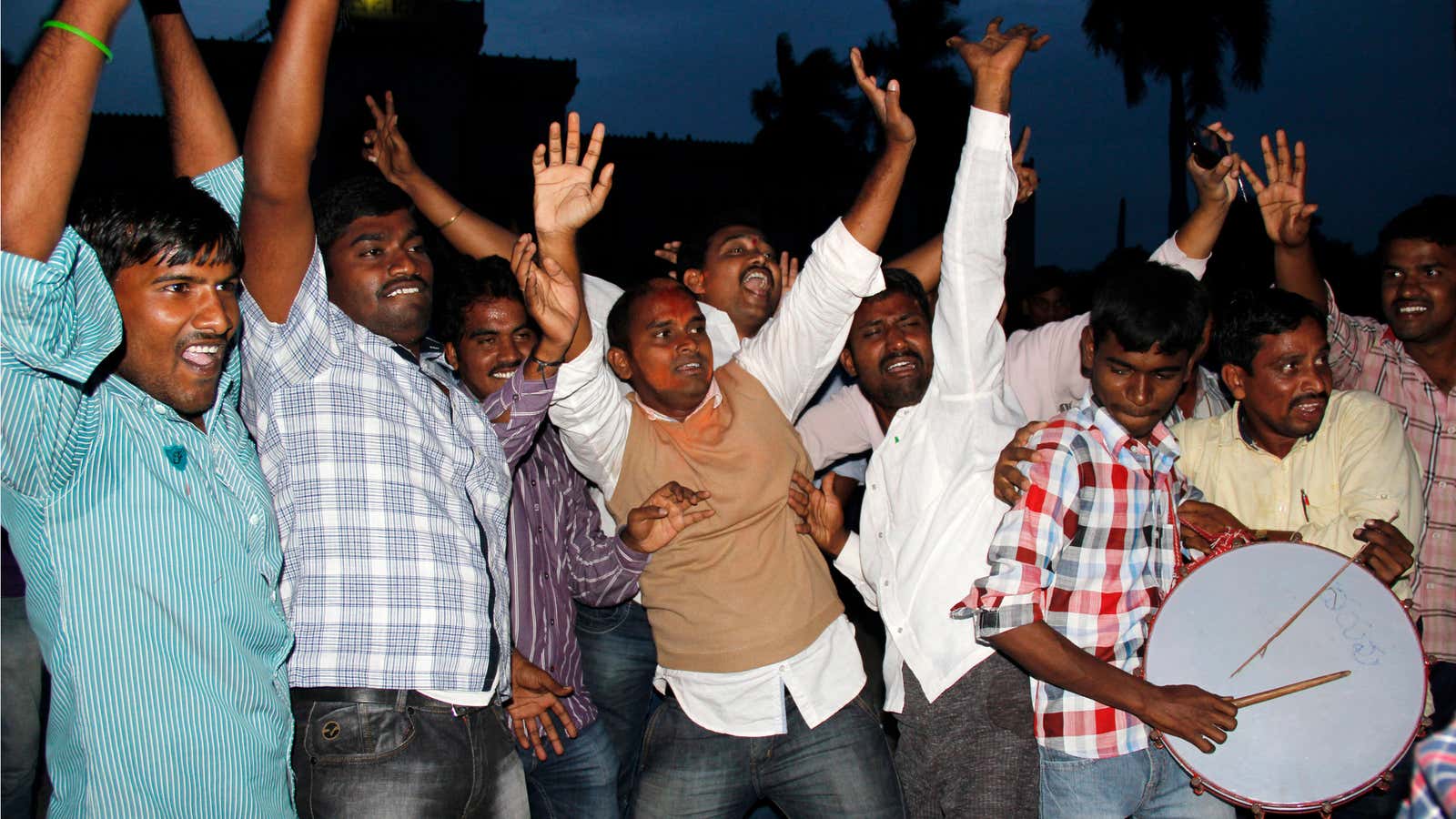India, the world’s largest democracy, will go to polls next year as it struggles to remedy a faltering economy and rising social unrest. What better time for the country’s 1,400-plus registered political parties to ply its 725 million eligible voters with freebies and cheap essentials, rather than real solutions? Here are some examples of what’s on offer:
Mobile phones
In a bid to return to power for its third straight term, India’s Congress Party, which has led the country’s coalition government since 2004, is wooing voters with mobile phones. The government is launching a 50 billion rupee ($798 million) project to offer subsidized mobile phones to 25 million people in rural regions. Telecom Commission, the top decision-making body within the telecommunications department, has given the go-ahead for the project that will offer mobile phones for just 300 rupees, according to the Economic Times.
Since August, the government has won parliament’s approval for a $20 billion-a-year scheme to sell subsidized food to the poor, and a pro-farmer land acquisition bill that businesses feel will increase the cost of projects by up to 3.5 times. In the run-up to the the last general elections in 2009, the government waived $15 billion worth of loans taken by farmers.
Cheap food and bottled water
Opposition parties governing many of India’s 28 states are rolling out their own freebies. In the south eastern state of Tamil Nadu, which boasts a population greater than that of France, the government started a chain of budget restaurants to help citizens hurt by high inflation, and is now selling bottled water at highly subsidized rates. During elections in 2011, the opposition offered free fans, laptops for students and 20 kilograms (44 pounds) of free rice for poor households.
Electricity, clothing and cash
In the past, other states have offered free electricity for farmers, bicycles and uniforms for students, cash sops for families with female children and cheap housing, at a heavy cost to burdened exchequers. Alarmed by the spike in pre-poll largesse, the supreme court in July directed the country’s elections body to create guidelines for spending. But in a rare show of unity, all leading political parties defended their right to woo voters with free goodies. Of course, what appears to be free in the moment costs taxpayers down the line.
